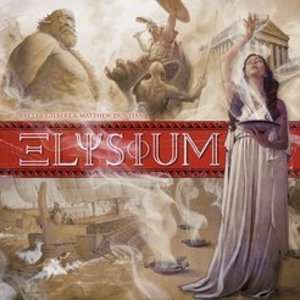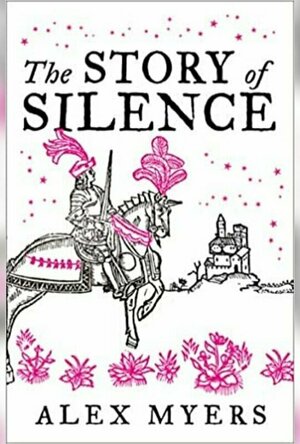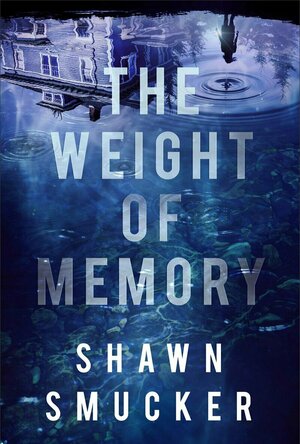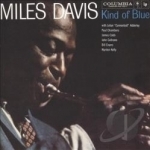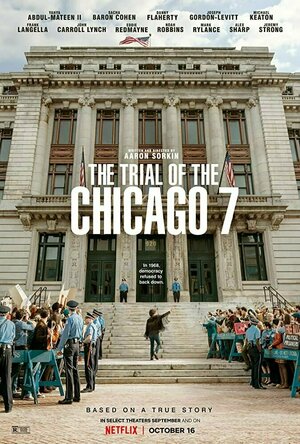Purple Phoenix Games (2266 KP) rated Elysium in Tabletop Games
Aug 3, 2021
Elysium is a set collection card drafting game for two to four players. Each player will be attempting to complete the greatest collection of Legends written and subsequently transferred to their Elysium (Ancient Grecian version of heaven) for Victory Points. Whomever weaves the greatest Legendary tapestry will emerge victorious and really have a story to tell.
To setup, follow the instructions in the rulebook, but a three player game should look similar to what is pictured above. Players will receive their own player board, starting VP tokens and gold, and a set of columns. Cards from five different Grecian families will be shuffled and displayed in The Agora (middle of the board and the place to draft the cards). Once setup the game may begin.
Elysium is played over five Epochs (rounds) and each Epoch is divided into four phases. Phase I is Awakening, which is simply setting up The Agora for the new Epoch by removing all existing cards there and revealing more. Phase II is Actions, where players will be using their columns to draft cards from The Agora (as long as the color of column matches one of the icons on the card) and taking at least one Quest tile (also denotes player order for the next Epoch). Phase III is Writing the Legends, where players will redistribute the player order discs, receive gold and VP per their Quest tile, and transfer any cards from their Domain – active holding area – to their Elysium for VP at game end. Phase IV is End of Epoch, where players will perform basic cleanup tasks to prepare for the next Epoch of play. Play will continue in this fashion until the end of the fifth Epoch and players tally their final VP to determine the greatest Legend-crafter in all the land!
I know this is a VERY brief summary of what is done during the game, but Elysium has many card effects and combos to consider that I just cannot detail here for fear of readers falling asleep or my fingers falling off.
Components. Elysium has simply an incredible aesthetic. The non-card components certainly radiate ancient times and the art on the cards is breathtaking. Every piece is very high quality, which is something I have grown to expect from Space Cowboys games. The columns are fun to hold and move, and as a whole is just visually stunning. I love playing this game and seeing it all out on the table.
Obviously we place our ratings on the very first graphic you see so it is no surprise by the time you read down here, but I love Elysium. Like I mentioned in my open it was in my Top 10 for quite a while, and for very good reasons. First, I love games that simply LOOK good. Is that shallow? Maybe, but it’s what I like. Second, I love the card interplay and combo potential in Elysium. Chaining together cards to build small engines is always fun and provides so much replayability by never really being able to experience every card combo in the box. Finally, it has great components and a theme that speaks to me and my personal interests. It feels like a game that was meant to be played by me specifically. When you find a game like that you have to give it high ratings.
So if you are at all like me and enjoy games with a great theme, excellent art and components, and intriguing replayability, then certainly grab a copy of Elysium. Purple Phoenix Games gives it an Olympus-sized 11 / 12. So many Ancient Greece themed games exist and Elysium is simply one of the best.
Lottie disney bookworm (1056 KP) rated The Story of Silence in Books
Jun 17, 2021
Silence is born a girl, but due to the laws of inheritance is raised a boy, with only 3 people knowing their true gender (one of whom, initially, is not Silence). The Story of Silence follows Silence from birth, showing their struggles between Nature and Nurture in the medieval period.
The writing style of this fantasy novel is remarkable, with an almost lyrical, ballad quality to it. The settings of Cornwall, and later Brittany, are described in such a way that captivates the reader, transporting them to the jousting fields, the towering castles and the courts of Earls and Kings.
The writing is at a slower pace, a literary journey rather than a sprint and for that reason I didn’t quite get the feeling of “I can’t put this down”, particularly in the middle of the novel. However, the twists and turns in Silence’s life were always quick to pull me back in.
As a character, the reader loves Silence from the very beginning. None of the struggles of their life are of their own making. Indeed, there are moments within this story where it would have been much simpler to tell the truth but Silence does not, displaying true knightly qualities of courage and loyalty. If I had one criticism of this book it is that, after his first “courses”, Silence doesn’t seem to find disguising his Nature very difficult., Yes, he binds his chest but he also travels on the road with male companions for years with no further mention of the more natural signs of his true nature.
The cast of characters surrounding Silence are also excellent, we have the troubled Earl Cador who, despite his original plan, it seems cannot love his child as he should; Griselle and the seneschal who do love and care for Silence and then there is Merlin.
Now, I know Silence should be my favourite character but Merlin stole the show in my opinion! There is no stoical wizard in Myers’ world, oh no! Merlin is a naked, disgusting old man who has an awful habit of laughing out loud at the unseen futures of those he passes. I also appreciated how Merlin wasn’t a solution to Silence’s problems (in fact the opposite is true!). Despite the magical undercurrent within this story, Merlin doesn’t fix everything with the flick of a magic wand – conversely he forces Silence to look inside and solve their own riddle, emphasising that you do not need to fit into one category or another, you can be both, you can be what you decide to be.
It should also be noted that, up to this point in the novel, Silence is referred to with the male pronoun, as that is how he sees himself. He is a boy. He is a knight! However, on processing Merlin’s world this pronoun notably changes to they and their. A beautiful detail that resonated how Silence had accepted their true identity.
The characterisation of women in The Story of Silence is something that has been picked up on a lot by my fellow reviewers and yes, the women in this book are often sex-crazed, deceitful, disloyal creatures. This is also an issue that is directly discussed within the author’s note, further proving that this was not an intentional slight on women. Alex Myers is an author, they are telling a story and that story takes place in the 13th century when, unfortunately, women were depicted like this. The main despicable action by a woman is essential to stay true to the poem. Was it frustrating as a female reader? Sometimes. But are there an equal number of ugly characteristics shown in the male characters? Absolutely!
The Story of Silence is a slow-burning tale which steadily unfurls into a captivating narrative which will stay with the reader long after the final page. The original 13th century poem captures the concept of gender so beautifully but Alex Myers takes this even further, handling Silence’s journey with love and compassion. I feel very lucky to have read this.
Heather Cranmer (2721 KP) rated The Weight of Memory in Books
Jul 18, 2021
I enjoyed the way the story seemed to flow so effortlessly and so smoothly. Shawn Smucker did such an excellent job of conveying this story to his readers. It was as if he had painted such a beautiful canvas with his prose and invited us inside. Every word I read left me wanting more.
When I read the synopsis of the The Weight of Memory, it definitely had me intrigued. I had to know how Paul's 11 year old granddaughter, Pearl, knew things about Paul's past and where he grew up with even though Paul had never told her. When Paul and Pearl arrived in Nysa, the town where Paul grew up and had left 40 years prior, I had to know why people in the town were acting so strange and what was causing them to act that way. I kept trying to guess as to why, but I was always wrong. There are quite a few plot twists revealed towards the end of the book which I never would have guessed. Loose ends are all tied up excerpt for one which was left undone on purpose. Smucker leaves this up to the reader to decide what happened. Personally, I would have liked to know more, but I can see why the author left it for the reader to decide. One minor thing for me is I would have liked more about the townspeople of Nysa. They were all acting strange, and I would have liked to know more as to why besides just the drownings (not a spoiler). As for pacing, The Weight of Memory did start out a bit slow in the beginning, and I did find my mind wandering, but I persevered, and I was handsomely rewarded with such an enriching story once the pacing picked up.
For the most part, every character in The Weight of Memory felt fleshed out and realistic. Paul Elias was such a loveable character, and it was so obvious how much he loved and adored his granddaughter. I could feel his worry come off the pages though about how he needed to find someone to take care of Pearl before his death. It was heartbreaking to know that he was so worried about Pearl and what would happen to her after he was gone. I loved little Pearl, but most of the time, she came across as younger than her 11 years. To me, she acted more like a child of 6 than an older one. However, I did enjoy her character, and I admired how much she loved her "Grampy" and how she would do anything for her. Paul's and Pearl's relationship was very special, and it definitely showed throughout the story. I didn't know what to make of Tom throughout the book. He was always so distant. The author does make it known why though towards the end of the book. Tom did come across as a pretty selfless guy considering how rich he was which was refreshing. (Personally, I would have loved to stay at Tom's gigantic mansion!) As for Mary and Shirley, I enjoyed reading about them both. I would have liked to know more about Mary's home life personally due to one scene in the book. Regardless, Mary seemed like such a sweet girl, and Shirley seemed like she was a lot of fun.
Trigger warnings for The Weight of Memory include death, drowning, a few mentions of drugs (Pearl's father was a drug addict), and near death experiences.
All in all, The Weight of Memory is a beautifully enthralling story with loveable selfless character and a plot that will keep you engrossed throughout. I would definitely recommend The Weight of Memory by Shawn Smucker to those aged 16+ who love their books to be heartfelt with a lot of emotion.
Mick Hucknall recommended Kind of Blue by Miles Davis in Music (curated)
Bob Mann (459 KP) rated Saint Maud (2020) in Movies
Oct 6, 2020
Maud (Morfydd Clark) is a palliative nurse looking after ex-choreographer Amanda (Jennifer Ehle). Maud is extremely religious and feels God move in her... regularly. Acting on His guidance, Maud sets out to save the soul of her ailing bohemian charge. But is Amanda beyond reach, and how will the zealot-like Maud react to that rejection?
Morfydd Clark appears so young in this film that you would think this was her debut film. But she's actually 30 years old and has quite an impressive filmography already. Although this is her movie-lead debut, she's had a substantial part alongside Kate Beckinsale in the excellent "Love and Friendship" and smaller parts in "Crawl", "The Personal History of David Copperfield" and the fun "Pride and Prejudice and Zombies". She's likely to get more worldwide exposure soon as a young Galadriel in Amazon's new version of "Lord of the Rings".
As Maud she is simply superb - expressing such a range of joy, hurt and despair that you must think a BAFTA Rising Star nomination should be on the cards.
Clark is ably supported in the leading role by the splendid Jennifer Ehle, still so memorable to me as Elizabeth Bennett from the BBC's "Pride and Prejudice".
Scarborough is also a star of "Saint Maud". The Yorkshire seaside town is another star of the movie. Clearly filmed before lockdown, the rainy and windswept resort looks bleak and unwelcoming. And that's before Covid! Many of those struggling bars and amusement centres, as in other resorts all around the UK, are now on their last legs.
Adam Janota Bzowski supplies the impressively claustrophobic music, which deserves recognition. A scene with Maud, flicking a lighter rhythmically in time with the sonorous beat, is a masterpiece in musical choreography and editing (by Mark Towns).
At the heart of this horror-thriller is whether, following a Dawkins-style argument, fervent religious followers are less insightfully correct and more mentally unstable and misguided. When is the voice of God just the voice in your head? And how would you tell the difference anyway? Piecing together the plot and motivations of Maud was intellectually challenging and rewarding.
I always get a little tense and nervous when I see the word "horror" on a movie bill. I am NOT a great horror fan! But for me, as a 'horror movie', "Saint Maud" is of the 'horror-lite' variety. Highly watchable, it builds more in the way of creeping dread than cheap shocks. There were only a couple of jump-scares (but for me, the one in the finale was a doozy!).
A BBC interview with Rose Glass I just saw says she relates Maud's relationship with God as like many people's relationship with social media. Always looking for support, guidance and affirmation. Interesting.
This is also an obviously female-led picture. All the men are complete tools. no, really, literally they are. It makes me feel ashamed to be among their number.
Overall, "Saint Maud" is a minor classic. I didn't go in with great expectations of this one, but I was pleasantly surprised. As a small British movie, it packs a punch significantly above its weight. When I came out I was at about a 7* rating. But this is one that really stayed with me, and I've subconsciously thought about little else all day. So for that reason I am going to escalate my rating to something more appropriate.
You might struggle now to see it on the big screen, but if you can do so, it comes with a recommendation from me. I think this one could REALLY be a "Marmite film".... so if you see it, let me know what you thought with a comment on One Mann's Movies here https://rb.gy/9k93ck . (Thanks).
Bob Mann (459 KP) rated The Trial of the Chicago 7 (2020) in Movies
Oct 24, 2020
I know a decent bit of 20th century history, but this is a story I knew nothing about. At the 1968 Democratic Convention in Chicago, anti-Vietnam protests resulted in a violent and brutal confrontation with the police. Eight of the ring-leaders were rounded up and charged with inciting the violence. What happens in the court with the eight convicted men, in front of an old and partisan judge (the wonderful Frank Langella), is simply amazing.
There's a nice wiki article on the history you can look up. But its worth watching the movie blind, since it's a great rollercoaster ride.
If you read my blog regularly, you'll know that one of my favourite of the awards in award season is the "Ensemble Cast" award from the Screen Actor's Guild (SAG). I think a good measure of which movies might be good candidates for this award is when you find it difficult to single out particular actors for an individual award when they all work so well together. For this is a cast to die for:
- Sacha Baron Cohen, as Abbie Hoffman: an intelligent 'straight' role, poles apart from Borat and Bruno, that he delivers on 100%;
- Jeremy Strong as Hoffman's buddy Jerry Rubin, doing an enormously entertaining turn;
- Eddie Redmayne as the apparently 'sensible one' Tom Hayden. A bit similar to his role in "Les Miserables", but diving off in a different direction at a key point;
- John Carroll Lynch as the genuine 'boy scout' David Dellinger, so good in "The Founder" and here as the only family man under the judgmental stare of his wife and son;
- Yahya Abdul-Mateen II as Black Panther member Bobby Seale - the "minus 1" from the title - in an astonishingly powerful performance;
- Joseph Gordon-Levitt as the prosecutor Richard Schultz - always quietly dependable;
- And the fantastic Mark Rylance as the defense attorney William Kunstler. I appreciate I am having a tendency to gush in this review, but Rylance expresses such a range of frustration and disgust here that his performance is nothing short of electrifying.
There's also a cracking cameo from Michael Keaton playing the former US Attorney General, Ramsey Clark.
I would think that any of these performances might be Oscar-worthy (somewhere in the Actor/Supporting Actor categories) but my personal choices would be Rylance for Best Actor and Baron Cohen and Langella for Best Supporting Actor nods.
One of my issues with the scripts of Aaron Sorkin is that they tend to be overly dense and wordy. In epic TV like "The West Wing" he could spread the dialogue over a whole series, but in a feature film it can become very dense and verbose. I found that in both of his last two films - "Molly's Game" and "Steve Jobs".
Here, in "The Trial of the Chicago 7", even though there's a lot of speechifying, to me it never felt over the top. Although an epic courtroom drama (akin to his debut script "A Few Good Men") the characters are given time to breath between the lines. And many of those lines are real zingers, particularly out of the mouth of stand-up anarchist Abbie Hoffman (Sacha Baron Cohen).
Aside from the script being a zinger, the direction here from Aaron Sorkin is also top-notch. If you thought a courtroom drama was going to be static and boring, think again. The camera never rests, and inserted flashbacks (excellent film editing from Alan Baumgarten) maintain the momentum of the story.
Overall, this is a movie tour-de-force from Sorkin, and a fantastic watch. Could this be a writing/directing double Oscar nom for Sorkin?
(For the full graphical review, check out the bob the movie man review here - https://rb.gy/y6bxtf . Thanks.)

San Andreas Grand Crime City 3D - Drift, Race & Shoot in Real Gangster City Simulator
Games and Entertainment
App
Welcome to the criminal world of Miami Vice City and take up the charge of the Miami Vice Grand...

My Secret Folder™
Lifestyle and Utilities
App
NOTE: If you are having issues with crashing go to your device settings and then the Privacy area...

Governor of Poker 2 HD - Texas Holdem Poker without internet
Games and Entertainment
App
PLAY POKER, FREE SINGLE PLAYER HOLDEM POKER OFFLINE on your iOS device and beat every cowboy in...

Sun And Moon Tracker 3D
Weather and Travel
App
With this app you will see where the sun is on the sky when the moon covers it. Check this out. It's...
